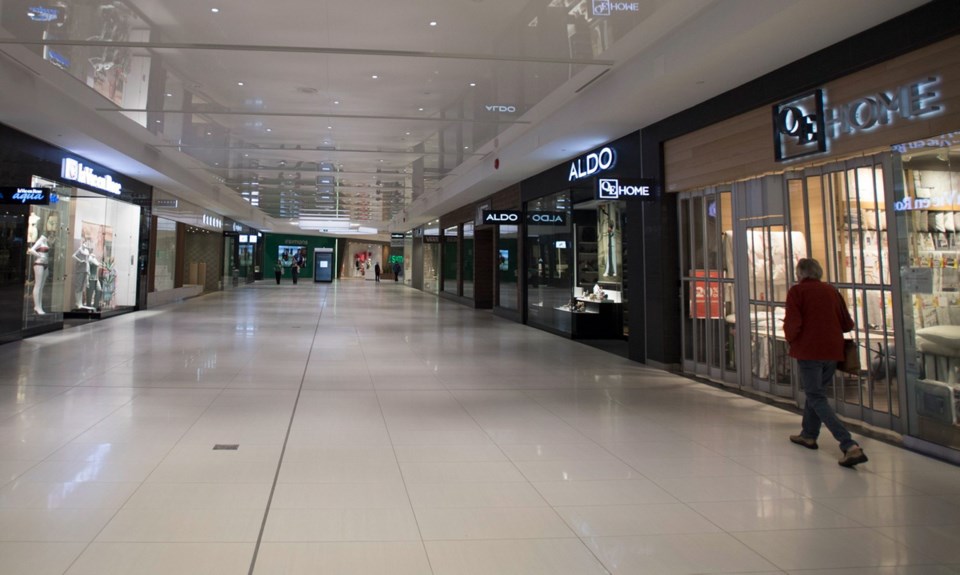A commentary by a former deputy minister in 10 ministries under five premiers, who also ran his own small business for 20 years.
Not sure if opening up feels good because we see the beginning of the end, or because we are no longer getting the bejesus scared out of us. The most successful communication plan in the history of governments was: “Stay home and isolate or the virus will kill many of us.”
We did it believing it was the only way to slow down, not stop, the virus transmission. B.C. was fortunately led by expert medical advice, calmly and professionally, and supported by government.
We are now safe enough to question a few specific decisions as we prepare for a virus return as early as this fall.
For example: To guard against a potential surge we emptied hospital beds. We would not allow our hospitals to be overwhelmed as Italy did. About 4,000 beds were set aside.
When we look back, we prepared ourselves for a surge at the start of our journey and this number made as much sense as anything else — the model said it was necessary. The surge never happened.
Therefore, as we look to a possible fall virus return, how many beds do we need?
We have 30,000 suspended elective surgeries: If just one-half of one per cent of them died while waiting for chemo or heart procedures, it would equal the number of deaths caused to date by the virus. Should we keep so many beds locked up so long?
Everyone has 20/20 hindsight. And this is apples-to-orange comparison, because the virus required quarantine, the elected surgeries required wait-list management. To people on wait lists for essential care, with announcements the backlog could take two years to clear, this is an essential question.
Here are a few more.
Should we consider regional solutions to isolation guidelines? Many people living in areas with very low numbers feel their lives are being unnecessarily affected by false caution. Especially people who live outside Metro Vancouver, in the Interior, the North or the Island.
Should we contemplate internal borders, with logical roadblocks to all but essential travel? We have heard many Island mayors makes this point, along with the Haida nation. Does not all-in-this-together theory need a fine hand to operate this sophisticated program rather than one-size-fits-all?
Why are we being so slow to get people back to work?
We now know that we have a serious problem with the virus attacking old people in care facilities. That is where the majority of deaths occur. And we must do everything in our power to deal with this issue. However, doom-and-gloom models did not come close to what happened to the public.
It appears as if government is just listening to one technical adviser. Where is the economic guru equivalent to our provincial health officer?
Recent evidence suggests a total lockdown in Italy lowered their GDP by 25 per cent, but a quicker start-up in South Korea caused only a 10 per cent drop. We are somewhere in the middle, so what is our target?
I think we need to have a debate about privacy issues.
A homeowner or renter should have the right to know where the hotels are in which the homeless are being housed so they could prepare. But no, we must wait — but as a banker friend of mine said, we will know when we see the crime statistics. That is a harsh reality.
Second, places such as South Korea provided the locations of every carrier on an app. You could look and avoid the area. Is that bad?
Privacy advocates will strongly object, but I believe if in one neighbourhood in our area has an outbreak, and I can avoid that area, why wouldn’t I? We are not giving out names, just information to let common citizens make informed choices.
In closing, I want to correct one thing I recently heard from a B.C. Crown corporation. It was about plans for increasing service. Their line was all has been arranged except for who pays — federal, provincial or municipal government.
Let me clarify.
The ones who pay are we, the taxpayers. Government is just the conveyor belt.
Importantly, government must tell us not just what programs are predicted to cost, but how we, and our grandchildren, are going to pay for them. Are new and increased taxes in our future? Which ones, how much, and levied against whom?
Let’s celebrate the miracle Canadians accomplished together beating back this virus. We will face an uncertain future with confidence, provided governments proceed with openness and transparency; after all, we are in this all together.
- - -
To comment on this article, send a letter to the editor.
• Email: [email protected]
• Mail: Letters to the editor, Times Colonist, 2621 Douglas St., Victoria, B.C. V8T 4M2.
Letters should be no longer than 250 words and may be edited for length, legality or clarity. Avoid emailing your letter as an attachment. Please include contact information; we require your first and last name and the municipality where you live for the letter to be considered for publication.



